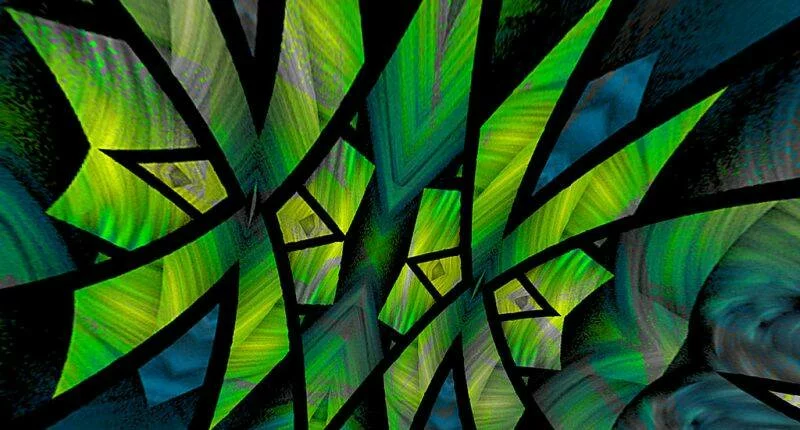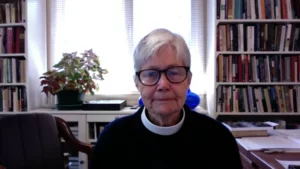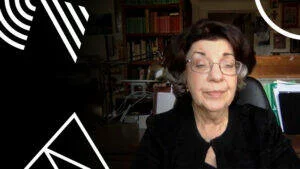In what do we place our hope? We Christians know to answer, reflexively, “In Christ!” But in some sense that is not to take the question literally.
The Light Between Truth and Reason
If I’m honest, when I say, “I put my hope in Christ,” I’m in part treating the question as aspirational or normative, as if it actually read, “In what/whom should we place our hope?” The answer to the more direct, factual question of in what or whom we place our hope may best be answered by others reading our words and actions—our fruits, to put it another way.
I have some ideas about other people’s problems, of course, but I’ll speak for myself when I say that I fear my words and deeds often testify to my hope lying in the wrong things: a better paycheck, a couple hours of entertainment, a fitness regimen, a new app or device. Not all my hope, by any means, but my immediate hopes for peace and comfort, for some respite from feeling like everything is a struggle before we arrive at our final hope in Heaven.
If the Kingdom is here, though, maybe I should hope to see its evidences in the here and now. And I do, sometimes. I see it in powerful films, in beautiful poems, in absorbing stories. I feel it in my children’s laughter, in the embrace of my wife. I read about it in the stories of people saved from absolute hopelessness into the hope of eternal life. I need those moments to keep me both grounded and oriented.
If it weren’t obvious yet, hope plays a dominant role in Purgatorio, the hope of souls to one day see God, but also the hope of the living to receive salvation. “No one,” says Manfred,
Why is hope green? There’s probably a fascinating history to the association, but we don’t need Google to appreciate the association of green with springtime, new birth, and, thus, new hope. Many of the souls who meet Dante ask him to petition the living to pray for them to speed them on their way. Again, we Protestants can set aside our specific beliefs about the afterlife to appreciate how different this is from the souls in Hell, who, if they hoped for anything, it was to be remembered for the very deeds that landed them in Hell, which is to say they had only false and errant hopes. The souls in Purgatory know they are on the right side of God’s justice—the side of submission, repentance, and purification, that is—and they thus hope, rightly, that God has more mercy available for them.
In canto VIII we see two green angels descending to defend the pilgrim souls against some as yet unmet serpent. The green angels suggest hope is not helpless or passive but is itself an active force against darkness. Indeed, it draws the souls up toward the very gates of Heaven.
This is the kind of hope I want to have. Active, boundless, almost desperate. The last hope of the condemned, that somehow, somewhere, his savior will come for him.
“Him who hides his primal Why”
Down in Inferno, It’s not surprising that the souls don’t have great insight into the ways of God other than, for some of the more insightful, to appreciate his justice in consigning them there. And since the souls in Purgatorio have yet to reach the immediate presence of God in Paradiso, maybe we shouldn’t expect them to fully understand His ways, either. But certain passages in Purgatorio suggest that perhaps it’s not for the finite mind to know God’s ways irrespective of where you spend eternity.
Virgil refers to God as “that Power that will not allow its ways / to be revealed to us,” adding that:
The little Enlightenment voice in me bristles at that “be content with the fact itself.” Aren’t we intractably curious? Shouldn’t we seek to know and understand? Isn’t our understanding part of the imago Dei itself?
We had opportunity to see the medieval view of curiositas back in Inferno. Since Augustine, at least, the church has warned against an overly zealous desire to know. Paul would even seem to circumscribe our potential knowledge with his “through a glass darkly.”
Virgil, here, also echoes Augustine in suggesting that our limited ability to understand created the possibility for the Incarnation, Crucifixion, and Resurrection, i.e., for the great divine drama of human history. In Augustine’s famous formulation—the felix culpa—if our limitation led to our sin and our sin led to Christ, then our sin was, in some sense, fortunate. Virgil doesn’t commit himself to calling our sin fortunate, just our finitude. So the limits of our knowledge in some sense ground our hope in Christ.
Knowledge and hope are related again in canto VI when the pilgrim and Virgil talk about the efficacy of prayer. Virgil seems to deny that prayer can change the will of heaven (a rather Greek view), which would make our hope in prayer vain. While Virgil explains that the prayer he wrote about was addressed to false gods and thus had no power, he suggests Dante not make up his mind about this question “until she says to / who will be light between truth and your reason” (VI.44-5).
“She” is Beatrice, of course, the lady whose intercession brought Dante on this journey in the first place. Notice, though, the distance between truth and reason. We might normally presume our reason just is the faculty we use to know the truth. That, again, is an Enlightenment presumption. The Romantics argued that reason never functions without the aid of imagination, and postmodernists added that neither reason nor imagination works independently of ethics (there’s good reason to think the smartest and most virtuous people of any time more or less knew all this already, but this is the timeline we’ve sort of worked out lately). Dante, here, via Virgil, presumes that reason cannot grasp the whole of the truth but requires transcendent aid, that is, revelation. Indeed, the whole Commedia is a kind of effort to elevate poetry, via reason and imagination, to the level of revelation (which is not exactly to say “Scripture”).
The last of these moments I’ll mention for now occurs when Dante, still in the Ante-Purgatory among the excommunicated and the late repentants, meets his friend Nino Visconti and speaks briefly with him. Nino asks Dante to bring a message to his daughter Giovanna, who is still living, but he asks in such a way as to invoke again the distance between human and divine knowledge:
Here finitude runs up against two problems, both that Nino cannot communicate with Giovanna from the afterlife and that God does not or has not explained why. Furthermore, Nino notes that God must be hiding his reasons from us—he has demonstrated a willingness to reveal some things to us, after all. The “primal Why,” however, the ultimate reasons of God may always remain in some sense his own or secret, at least this side of Heaven.
Again I feel this perhaps inappropriate curiosity; I want to know. I want to know the secret heart of God, which is to say I want the keys to the universe, which will, presumably, fulfill the deepest longings of my heart, probably by turning me into something like a god myself. This is, I think, just what Augustine meant by curiositas
But then I think of the list of what we do know: God’s obvious love for his creation and for humans, in particular; his desire to spend eternity with us in a holy community; his personal sacrifice to make that happen. What we do know, when it comes down to it, is pretty amazing and wonderful and ought to give us plenty to occupy our finite minds.








Comments
Be the first one to make a comment!